A recent report, The Strategic Defence Review, Britain and Sea Power, published by the Council on Geostrategy, argues for a renewed focus on British sea power as a cornerstone of both national security and economic stability.
Authored by Dr Emma Salisbury and James Rogers, the report advocates for a “NATO-first” defence posture, aligning with the current Labour government’s commitment to fortifying the UK’s role within the Atlantic alliance.
The report notes that “the sea power remains central to the national effort,” especially given Britain’s reliance on maritime trade and secure sea routes. Salisbury and Rogers highlight that approximately 95% of British trade by volume is conducted by sea, underscoring the necessity of a robust naval presence to safeguard these routes against disruptions from piracy or geopolitical tensions.
The report highlights, “For an island nation such as the UK, the sea is a critical lifeline for the economy,” stressing that sea power is essential not only for economic growth but also for fulfilling the Net Zero agenda due to the UK’s extensive offshore wind infrastructure.
This map, from the #SeaPowerLaboratory‘s new #Primer by @james_rogers @salisbot shows how 🇬🇧 is ideally positioned to be a #maritime leader in #NATO 👇https://t.co/ANIIZS7fGX pic.twitter.com/NQ96RzEW2S
— Council on Geostrategy (@ConGeostrategy) November 6, 2024
From a security perspective, the report describes a “NATO-first approach” as critical for collective defence in an increasingly volatile global environment, with particular reference to Russia’s activities. Salisbury and Rogers point out that, despite the strain on Russian land and air forces due to the conflict in Ukraine, Russia’s naval assets, particularly its submarines, remain largely operational. “The UK’s ability to project naval strength and conduct anti-access/area denial operations is paramount to countering Russia’s naval capabilities,” they assert, pointing out the need for continued investment in submarines and maritime patrol aircraft.
The report also calls for increasing the UK’s defence budget to 2.5% of GDP, aiming to improve readiness and coordination among the armed forces. It highlights the significance of the Royal Navy within NATO’s deterrence framework, noting that sea power can rapidly respond to crises and protect vital infrastructure, both at home and abroad. “Naval assets can deter threats to the homeland, important infrastructure, and to allies and partners,” Salisbury and Rogers explain, adding that a robust navy reinforces the UK’s commitment to NATO’s deterrence posture.
Recognising the need for a comprehensive maritime strategy, the report introduces the Council on Geostrategy’s “Sea Power Laboratory,” which will act as a forum to “increase awareness of the importance of sea power to Britain’s national enterprise.” This initiative, according to the Council, will bring together stakeholders from various sectors to generate fresh ideas and challenge traditional approaches to maritime policy.
Salisbury and Rogers argue, “The Sea Power Laboratory will act as a marketplace of ideas, fostering an environment to challenge outmoded ideas, generate new thinking, and ultimately feed it into the policymaking process.”
In conclusion, the report reinforces that “sea power provides the UK with the flexibility to respond rapidly to crises, whether military or humanitarian,” advocating for a whole-of-nation approach to strengthen Britain’s maritime strategy in an era of heightened geopolitical competition.


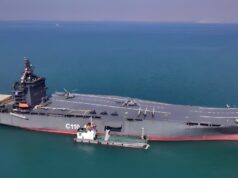
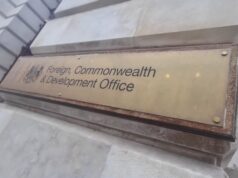
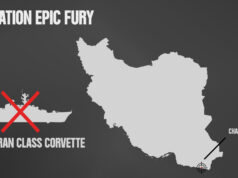
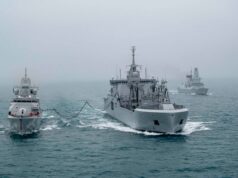
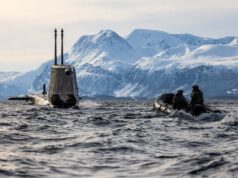
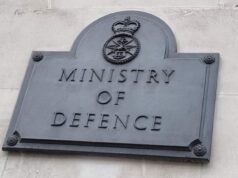

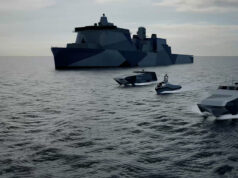
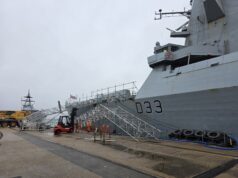


If the current defence budget is running at 2.2-2.3% GDP, is going to 2.5% GDP going to make any difference in real terms? It should be 3.0% GDP minimum.
It will make a difference but you are right that it needs to be more.
I think we need to put aside the GDP benchmark for good. It does us no favours.
As long as NATO use it then I can’t see it changing. News from the US may mean we end up at 2.5% sooner than would have been the case.
Yep, if the economy was to shrink then any government could claim still to have increased in defence spending by % of GDP.
I would put 3% as a minimum. Not going to happen, but we can’t trust the US any more and Europe has to be considered fragile. The army is a ridiculous size, conventional naval component is inadequate and the air force is barely acceptable in terms of size.
If you can’t trust US you need at least 10% not 3%
Starting by copying France in their nuclear strategy.
America has become like the french, can’t be trusted.they swap and change tack so often, you can’t keep up with it the u.k should commit to a surface fleet of 30 ships and stick to it.
Put yourself in America’s shoes. Can Europe be ‘trusted’? To do what exactly? It cannot even hold its own against a country with the economic power of Mexico. The US needs to be prioritizing its Asian allies against china.
Yes, this.
I will be amazed if we get anywhere near 2.5 per cent this side of 2030 and with our foreign secretary personally attacking Trump, along with the mayor of London and umpteen Labour MP’s doing the same, I don’t see much help coming from that direction. Lammy is more dangerous than the Russians.
The FS attacked Trump years ago, yes stupid but more history than Vance describing him as Hitler. As for the Mayor he was the one who has been regularly attacked by Trump and his ass sniffers and in a deeply offensive racist manor. How many insults does this Country have to take before we actually grow a pair stop laying down and apologising, I mean seriously Trumps treatment of Teresa May was disgracefully disrespectful and one thing is certain the only people he has ever shown remote respect for are those who do indeed stand up to him.
No argument from me on moral grounds. I don’t like the man at all. The problem is that we have to be pragmatic. The job of a foreign secretary is to be diplomatic , not to be so fond of himself that he thinks he can attack the President of the United States of America. Trump is not a forgiving man. Will he hit back? I would not be surprised so we all loose. Labour theorists on the left need to keep their mouth shut.
A politician throwing insults is nothing to do with left or right. In defence of the Labour Party theirs some up standing and statsperson like MPs, but they have some who should have known better so it’s not the politics it’s the individual.
Give me the name of one Tory who has attacked his electiion victory.
nothing to do with the Tories.
Except Vance and Musk all attacked him recently.
Don’t understand this.
ditto
I’m afraid so.
I’m no fan of The Tangerine but he has been elected to office so we have to deal with him.
Simple as that.
We do, for better or for worse..
or for worser.
agreed but they’ll need the unions backing on everything else.its the calibre of the individuals that bother s me the likes of lammy, reeves e.t.c isn’t exactly inspiring
I have a calibre in mind when it comes to the cabinet…
So you dont remember the day Trump was elected and Teresa May slagging Trump of to the hilt calling him every name under the sun. I bloody well do and on a scale of 1 to 10 i was a bout 1,000,000 on how angry i was with that stupid women.
There’s this thing called diplomacy sometimes you just have to bite your tongue and be cordial with someone. Instead she chose to go full retard and slag of the leader of our closest allie. She’s no better than that morron David Lammy our supposed foreign secetary.
nothing will change until respect on both sides improves. I’m sick of the 51st state inferences that abound these days we should stand up- for ourselves better and take a firm stance with the u.s don’t have their respect and it doesn’t look like we’re going to get it. they regard us as a junior partner in everything. we are the only tier one nation from the f 35 program, we are still waiting for our orders to get met. yet, other nations are building their f 35 numbers. the only language that the Americans can understand is money. all of the American defense contractors are totally reliant on the orders from the UK if we take a firmer line on delivery on defence trade then they might just change their tune.
That’s all lies, Lammy has said nothing bad about Trump since being elected and has had meetings with him before Trump was elected.
So you don’t think Trump remembers what Lammy did say about him?
the quality of government individuals is worrying. so far we’ve had allegations of sleaze and the winter heating saga. I’d imagine that of those who voted for the starmer circus wouldn’t have done if they knew about the current situation.
I don’t think I have ever come across such a bunch of smug and arrogant individuals. Four years? dear God, what a future we all have.
it’s also about pace, how soon the 2.5% number is achieved – not by 2030 , but now.
After yesterday’s election result in the US I can see non-US NATO defence budgets being forced north of 3.0%
Paul Mason the economist, in an article on Open.substack argues it should go up to 4% GDP.
Well that’s what it was during the 80s at the height of the Cold War. In my opinion, the world is a hell of a lot more dangerous now than it was back then and we have a political class – both Labour and Conservative to be fair – who are in complete denial!
you could put 10 percent of GDP and it wouldn’t make any difference we d have the manufacturing base we need for everything
Our geographic position and international relationships have led our defence posture over five centuries. The sea is where our power can count. Such a conclusion as this report comes to is merely re-stating an obvious historical reality.
Yep.
RN, RAF, Intelligence community first.
That does not mean I want to see the Army whittled away to fund it or any further drop from 73K. The Army is still needed at at least 2 Division strength, with one of those for the main front facing Russia and the other for both expeditionary operations further afield, in conjunction with the RN and the RAF who would put them there, or on NATO flanks like Finland Norway.
In short, HMG need to spend more money to fund this.
I predict they will not.
We’ll be lucky to see two fully equipped brigades, never mind divisions. Your three priorities though are perfectly correct. We do at least have the foundations with the RN and the RAF to move forward.
Well we have 4 Brigades rather than the 6 I would like to see, as the other 2 are incomplete.
And that can be fixed by a few adjustments in 4 Brigade and a restructure of 1 Bde.
Both are doable if the Army stops going round in circles and re organises itself internally and sticks to a plan, and if HMG fund the incremental increases in a few key areas.
I have no faith in the ability of either at this time.
I’d remind readers that even after the dreadful 2010 cuts the Army with its A2020 set up had SEVEN deployable Brigades if one includes 3 Cdo RM.
That they chose in 2015 with A2020R to throw the CS and CSS for some of them away, cut an Armoured Bde, and introduce the Strike fiasco then the CGS of the time should be explaining to a DSC in public why he did that.
“Going round in circles” sums it up nicely. So we have 16 AAB , reasonably okay but short of aircraft both fixed wing and helo’s; two light infantry brigades at home, with nothing more than Jackals and other odds and ends, both short of personnel and relying heavily on reserves; an artillery brigade with almost all of it’s equipment still to come sometime? That leaves two supposed armoured brigades, now of course renamed probably because they got bored with “strike”, the only problem being that they have next to no upgraded MBT’s, no cavalry to speak of and thirty year old IFV’s.
So as you say my friend, lets sort out ships, aircraft and cyber/intel as the absolute prioities.
Unfortunately those foundations are being rapidly eroded. The RAF is already under-strength, and predicted manpower levels puts it at <75% by 2030 – with the engineering trades dropping to <50%. It’s at the point that they will have to look at closing squadrons because there are not enough people to keep the planes flying safely.
We are still paying the price for the “peace dividend” What a stupid phrase that is. Peace when half the so called developing world wants to annihilate the other half.
Mmm a week ago I would have agreed with you regarding our resolve to get to 2.5%. I think that went out the window last night and a sense of realism may surprise us, Europe en masse has to stand up (including us).
🤞🤞
I for one will be watching Europe’s response with interest. Tho tbh I suspect it will weak and even duplicitous. We’ll get the usual ‘strategic autonomy’ from France – which is code to buy French and support their arms industry all the while spending as little as possible themselves. Germany – well they’ve got budget & constitutional debt issues at moment – how they will go with Ukraine funding ( esp as they despise France for its lack of Ukraine support) is an issue and as for Italy and Spain they haven’t been great supporters of Ukraine either tho I’m unclear about their own domestic defence policies ( Italy is a partner in Tempest at least).
Interesting times ahead it seems.
I agree, I think last night was the end of the “American Empire” and the start of a new isolationist era. Time for Europe to step up.
There has never been an American Empire. The US isn’t a European country. You guys have gone unhinged.
I really hope so.
With things hotting up all over the place there isn’t time to lose I’m afraid.
What is needed is a clear spending curve so the orders and pipelines can be placed.
As everyone has seen you can just go to MissilesRus and buy more on demand. Increasing production rates means supply chain growth as well.
Part of the problem is the diverse nature of the supply chain which may or may not respond and BigCo not being interested in upping production of SmallBit#060022344567 which is critical and you can’t tell them why it is. Multiply that headache by a few thousand and you get somewhere near the truth.
Hi Daniele
For me, the devil is in the detail. It’s fine to draft reports with statements like “we must invest 2.5% of gdp on defence”. What I’d like to see is supporting financial analysis:
-what would this actually cost (just top line estimates) ?
-will 2.5% of GDP be sufficient? .
-if not, what does the gap look like, is it feasible to fund?
We are reliable on governments for the above, none of whom I trust. Independent 3d parties can be useful as auditors. It may well bring some accountability and openness around defence funding. Far better than a politician’s sweeping statement about getting to 2.5% of gdp , without a firm plan as to how and when.
My accountant rant over!
You’re right, mate.
They hide behind this or that % all that time, while ignoring what’s shoved into it and ignoring what exactly they want the military to do and fund it accordingly!
Worth looking at TPL in rationalising the massive defence estate and its attendant costs.
Sadly, that’s a part of defence I find most interesting, I don’t like to see sites close, especially those that could be of strategic use. Once they’re gone they’re gone.
TPL were discussing BRNC the other day.
Me, keep it, I see no benefit in throwing away the family silver or being ashamed of grandeur, which seems to be another “British disease” some have caught, I assume due to “Empire”
They’ll be training officers out of a garden shed next to save on costs.
Cost of everything, value of nothing.
I dunno, I don’t know if it’s an issue of needing more money.
The defense budget since 2016 has increased 55 percent (according to SIPRI), thats just 6 years.
But in that time 10,000s personnel cut, platforms retired with out replacement, pretty much everything cut beyond the bone.
So where is all the money going?
I’ll give you an example of how government can waste money. In New Zealand the government decided that wanted a children’s playground on parliament grounds, they spend over 500k being just one tiny slide (that probably actually only costs 5 grand to make) that got burnt down by protestors. More than half of the money went to “consultants”.
Is that what is happening with Britain’s defense budgets, is 10s of billions being sucked up and just disappearing to contractors with nothing to so for it.
So it maybe a case that Ministry of Defense needs a decent audit?
True but how long would those ships last without serious aircover.
Predict the AUKUS defence partnership will become an increasingly important feature of UK/US “special relationship” during the course of the next US administration. Regardless of his views re NATO, The Donald will avidly support any measure which constrains the PRC, thus AUKUS will prove to be the Trump (😁) card in intergovernmental relations. RN could be enroute to a historic expansion of SSN flotilla quality and quantity. 🤔
Could be but unlikely.
Well there is that way of looking at it or there is the concern that a Man who came to power on the meme of America First and others indeed America Only, and thinks tariffs is the sweetest word in the World, then how does he feel about loosening ITAR which is vital to any success of AUKUS developments moving forward. His support for Taiwan is very up to debate currently so whether he sees Australia as just another hanger on rather than a vital protector of the southern flank.
The media paraphrases some of DT’s comments, ignoring the full context i.e.to support their own editorial agenda. Most of his criticism re NATO is levelled at member states not meeting the 2% minimum . The man has a point.
America first cannot and will not work without the interest of allies being considered (at least). I cannot foresee DT relegating the AUKUS partnership, it has to much value to the US. It’s likely a centre right government coalition will come to power in AUS , strengthening ties.
Trump is an isolationist to some degree, but probably makes an exception for the UK (as a property owner 😁) and undoubtedly any issue involving the PRC.
Believe ITAR burden is being/has been significantly addressed for both Australia and the UK.
Fingers crossed 🤞
M8 I just hope your right, he would be nuts to throw AUKUS under a bus.
Absolutely agree. 👍👍
He’s already talked of throwing UKR & any European NATO member under the bus, even of pulling out of NATO. The guy’s a dumb psychotic tyranical madman & compulsive liar who thinks Putin is a great guy. He could do immense damage to the USA, let alone across the world. This term he has non of the more sensible folk who managed & restrained him before.
Are you guys as surprised as we were last night ?
Trump is a very smart man. He succeeded in provoking Biden to make that disparaging remark about Trump’s supporters bring rubbish. In doing so he revealed the well concealed arrogance of the Biden/ Harris intellectual woke elite. He demonstrated that they really do look down on blue collar workers with conservative family values – a description which includes most 1st generation immigrants.
Good work Donald 👏
That’s not smart, he’s just a very nasty bully.
To be sure he does come over as a bully – but victims often do. The clue to reading him is in his supporters; working class conservative family oriented Americans who see themselves as victims of ‘progressive’ politics. No-one is perfect; he has redeeming qualities which are needed right now: he is decisive and he knows how to make sound deals. He will end the endless escalating standoffs in Ukraine and Taiwan.
“He will end the endless escalating standoffs in Ukraine and Taiwan.”
What, by delivering these free, democratic allies into the hands of Tyrants Putin & Xi? That’s just what the occupied WW2 countries had to do to the Jews. That’s not statecraft or rational diplomacy, but evil capitulation, beyond appeasment. It makes him an accomplist of evil.
If I had to guess I would say China will leave Taiwan alone in exchange for not imposing the 60% import tariff threat and Russia will be allowed to keep Crimea and influence the governance of some of east Ukraine in exchange for the ATACMS gloves not coming off and Ukraine joining NATO.
Yes, generally. Pundits stated election would depend upon a few thousand votes in critical states. In reality, the vote was not even close. Economy (principally, past inflation) and southern border security were judged to be the most significant issues. Current administration was only partially responsible for the inflation (progressive Democrats in Congress led the vote for too many stimulus packages during/post COVID-19). The other portion is generally attributed to supply chain issues.
In any event, recommend ENATO (w/ exception of UK), buckle in for an interesting four year ride. Predict that Ukraine, unfortunately, will be an early casualty of Realpolitik. Believe AUKUS will generally be supported, even promoted by The Donald. That is the limit of my orecasting ability. 🤔😳
As the saying goes….it’s the economy stupid. How on earth did Kamala Harris ever think parading Hollywood celebrities was going to get the votes of families struggling to pay the mortgage? She was living a delusion. The American people have exercised their common sense.
Trump will pressure Zelensky and Putin to an agreement and will use trade rather than military force to bring China to heel.
A significantly more optimistic view of the future than typically presented. Hope your forecast proves correct, but please forgive me for not wagering on that premise. 🤔😳🤞
Evens? I have faith in Donald’s redeeming qualities 😂
… forecasting… 🙄
Morning Mate – lots of change coming ! I did foresee a DT Republican win, but I thought it would be really tight. I am surprised by the margin and the popular win vote – never saw that coining!
Exactly, virtually all of our political pundits similarly misforecasted the actual election results.
It’s an electoral college, so the margin is magnified. In terms of the popular vote he won by 3.3%. I do wonder if running a non-white, female member of the sitting administration was enough to lose it for the Democrats. I believe that if Biden had not been running in the first place, Harris wouldn’t have made it through the primaries.
Unsure about Harris, regardless of the primaries. For me, their strategy appeared off the mark. Celeb endorsements and a lack of pushing policy – not a great plan. I believe they also out funded the republicans on campaign spend as well, which was interesting considering the result .
The Republicans simply ran a better campaign, successfully targeting the working middle class.
As that old American political adage goes – “it’s the economy dummy”
A woman, who was instrumental in DT’s campaign, may be selected as his next Chief of Staff. Evidently equipped w/ a formidable intellect and personality, she may help corrall and harness the Donald’s most extreme tendencies. 🤞🤞
cheers Mate , I just saw that on the news here. At 78, It’s amazing DT still has the stamina!
Reasonably certain there will be a slew of articles, books, Ph.D. dissertations, television documentaries and interviews, blogs, vlogs, and every other form of communication known to mankind, analyzing and deconstructing this election. There is certainly the possibility that racist and sexist discrimination motivated some proportion of the electorate. However, personally believe, based on media coverage, that two issues predominantly determined the vote: Economy (principally inflation during/after pandemic), and illegal immigration across southern US border. One could argue fairly that not all inflation was directly attributable to the Democratic administration, but the admission of 10+M illegal immigrants, (including an unknowable number of criminals, terrorists, spies, etc.) was certainly directly attributable to current administration policies. The degree of Kamala Harris’ direct responsibility for these policies is probably debatable, but she certainly became a target of opportunity for a disaffected electorate. Of course, my analysis of the election could be totally incorrect, this topic is quite unrelated to systems engineering. ,🤔😳😉😁🇺🇸👍
fist class analysis! In particular, you are spot on re 2 big issues:
illegal immigrants
the economy
You don’t think the Donald wants to pull out of AUKUS as well? Do you think his base wants to tussle with china over Taiwan if they can be bothered sending a very small amount of money to Ukraine?
I just see an isolationist positions and an outright rejection of the Regan Republican Party.
Agreed, certainly not (The Gipper) Reagan’s defense and foreign policy, but unfortunately, he is no longer available to serve. Actually,l believe The Donald embraces AUKUS, as an opportunity to exercise burden sharing among allies, as well as having profit generating potential for US MIC.
Just wanting more of everything isn’t very useful. But at least the article recognizes that Russian submarines remain a major threat. On current plans, UK will have at most-
* 8 ASW frigates
* 9 Poseidon
* 7 SSNs.
Russia has over 57 full size submarines both nuclear and diesel.
UK resources are far too small to counter this threat. NATO first is an improvement on Tilt to the Pacific but we are building T31s whose declared purpose is to be globally forward deployed, replacing or augmenting the OPVs. They have no ASW capability, unlike the original Danish design.
China is a distant and theoretical threat.
Russia is nearer and an actual threat.
It should be obvious what our defence priorities are.
+3 replacements for Sterling Castle
+2 replacements for Proteus
+ 6 German SSKs
Take your point but as things stand the threat from Russia and China while not totally tied at the hip yet are still pretty much two flanks of the same developing World conflict. Whatever their differences they, with their allies are intent on crushing the west beyond it surviving as a tame market for their goods and leaving the US as an increasingly isolated island it can eventually ignore. Russias aim is to increase its power and influence through fear and disagreement in Europe while both want to weaken western resolve and unity to achieve that longer term aim. Literally my enemy’s enemy is my friend… while they are useful.
The collapse in the numbers of RN minesweepers/hunters over the last 30 years is a worry.
It’s a good point John. I wonder how the new policy of RFA ships in this role will play out, Unsure if it’s viable or another cost cutting option.
They’re pretty obsolete now that drones can do the job far cheaper, far safer etc. It’s escorts, carrier strike, subs, amphibious & the RFA that we desperately need to rebuild. Bring recruitment back in house too.
Look at the Dutch/Belgian motherships, being built now. Manned ships that launch unmanned drones to deal with mines. I would build at least 6 of those in the UK for the RN.
The Belgians & Dutch will have 6 each of these new MCMV. 2830 tonnes, 82.6m long, 40mm Bofors for self defence.
If NATO is to survive the return of Trump, significant defence spending uplifts will be required from most members. That means Starmer will need to pull his finger out and get to 2.5% ASAP.
Obviously in the event of an actual war those offshore wind farms would be easily destroyed if the enemy saw strategic value in doing so. Defending them doesn’t strike me as plausible by any realistically achievable A2/AD effort.
Off shore infrastructure has been their for decades but the difference is if the fossil fuel infrastructure is destroyed they are portable ie they can be bulk shipped but electricity isn’t. At the moment we have diverse usage with a mix of electricity and fossils fuels were going to move to a far less diverse model with a massive dependancy on electricity for almost everything. Does that answer the strategic value part.
When political class talks about energy security they mean economic security so supply is decoupled from the global markets and price’s they don’t mean they can physically secure it.
And the biggest irony about wind farmers is they actually interfere with military radars. Have a quick Google on the topic
I’m not against wind farmers but a little more honesty on the risks we face would be nice.
I don’t actually think spending 2.5% on defence is going to make much difference should be at least 3% .Yes we need more ships but oddly enough I was just reading the other day that this year over 1.600 sailors have left the service and new numbers are not making up the loss.Pointless having more ships without manpower and that’s for all three services .HMG must sort out recruitment one way or the other .I do believe we are at a 5-12 on the clock ⏰ 😟 pray I’m wrong 🙏
You are not wrong. Recruitment is key. An agency that not understand the industry its recruiting for is an automatic failure. Yet Government’s (it’s not just a UK thing), fail to realise that the military is unique. It’s not a police force with a different hat.
4-5% may be more realistic given the threats & USA becoming very unreliable.
I think that we will be at 2.5% with 2 or 3 years – assuming that especially the army has the capacity to use those resources effectively without pissing it all away on gold plating and special needs.
If Trump pulls the USA out of NATO we’d be on the periphery of Europe & the center would be Germany. Though a strong RN(it is very far from that atm) is always a strong asset to NATO security.
My understanding ( of US politics) is that Trump is not constitutionally free to pull the US out of NATO. That power lies with the Senate where there is virtually unanimous cross party support for NATO. I think only 2 senators voted against the accession of Sweden and Finland. I don’t believe it works like it does in the UK; Trump can’t ‘whip’ his party members in a vote. I’m not sure how funding for Ukraine works though; how much the president can authorise on his own. I think the president could authorise use of ATACMS for example against targets on Russian soil. So I agree with the geostrategy map. Starmer is meeting wifh Macron today. As the leading military European powers the UK and France need to agree how to handle a Trump presidency. My own view is that Zelensky needs to concede Crimea and propose the carrot of solutions for disputed territory based on the NI power sharing model. Meanwhile the US could hold a big stick. I think that having suffered by some estimates 700k casualties I would hope that even Putin would be open to offers.
power to produce and maintain would be a good thing to start with.